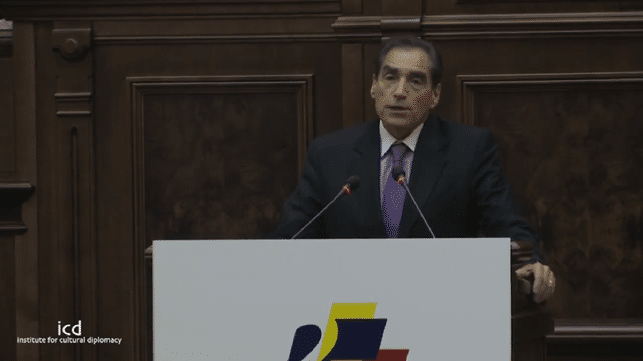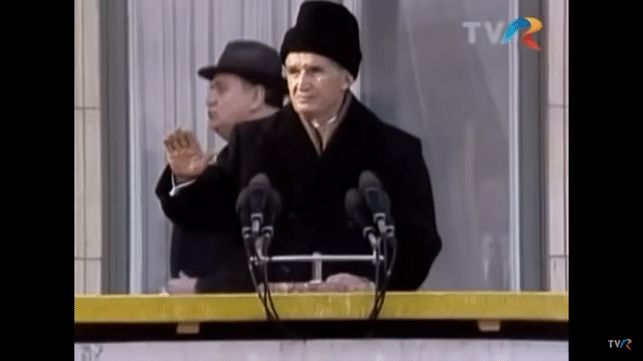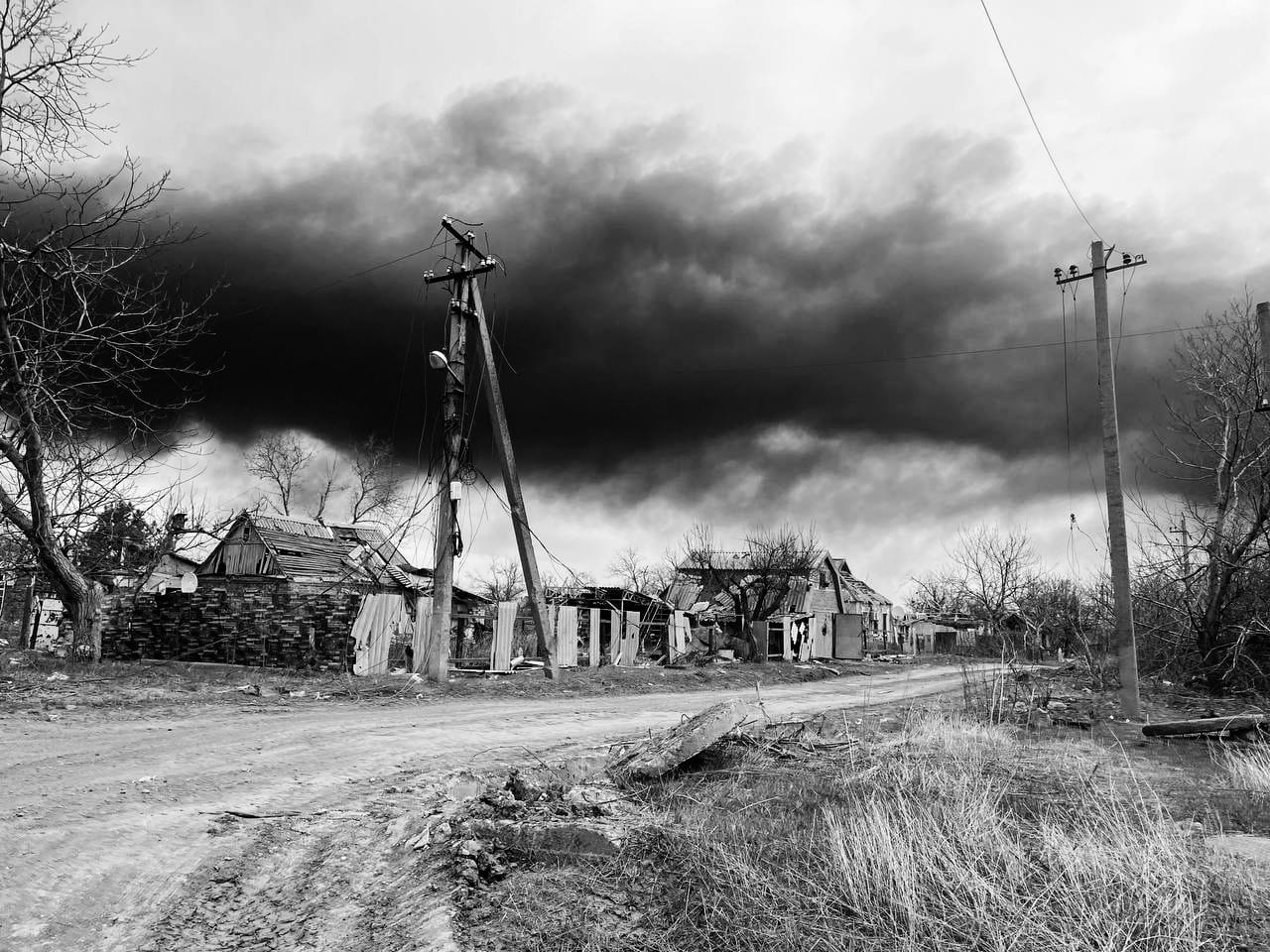His father, Valter, was a “generous” partisan in the Spanish Civil War. The Romanian communist regime opposed his father and later him. His dissent against Ceaușescu’s repression will accelerate the Revolution of ’89. His commitment was essential in Romanian democracy construction; Romania is a NATO outpost on the new Cold War’s chessboard. A dialogue with one of the twentieth century’s History protagonists, Professor Petre Roman, former Prime Minister of Romania, Member of the Club de Madrid, and recently Dean of the prestigious Swiss UMEF University in Geneva.

Congratulations on your newest assignment. What convinced you to accept the UMEF proposal, and how do you think you can improve the excellent training offer? What is your vision of teaching and learning?
“In Romania, before actively participating in the Revolution, I taught, so it is a return to what I have done for a long time and with passion. I had the pleasure of meeting this prestigious university thanks to Salvatore Lombardo, a great journalist and intellectual, who involved me in the Executive Master in International Relations and Global Cooperation. The master is very prestigious because it gathers experts from all over the world, including other former heads of state like me. I was immediately convinced because the UMEF is a university open to the world and has branches everywhere. The headquarters, then, is a 15th-century castle: fantastic!
The global ruling classes must govern often in total unpredictability and with asymmetrical information; we aim, through education, to provide them with the tools to read complexity and act.
The more than forty experts will speak to an audience of young experts who will treasure their and our political and governmental experiences, which will be helpful in difficult moments of managing public affairs.“
À propos du Liban et de l’Afghanistan. Un dialogue avec Salvatore Lombardo – Il Tazebao
Politics has always existed in your family. How much did your father influence you?
“Correct! My father was a generous anti-fascist, always willing to sacrifice himself for the ideal of freedom and often risked his life for freedom. He was a volunteer in Spain, commander of the international brigade. Even Hemingway mentions it in “For Whom the Bell Tolls”. In Romania, after the war, he suffered severe repression. Stalin hated people who fought for freedom like him: they were a threat. He was arrested several times but the communist regime in Romania proved to be blander than elsewhere, and therefore his life was saved. He was also engaged in the state organs. He was editor of the political magazine Editurii Politice. Thanks to that role, he had relations with the European Communist parties: he was a friend of Longo and Berlinguer. He began to believe in Eurocommunism because he rightly saw that the communist regime, as it was constituted, tended to preserve itself, be impervious to changes and society, and be unreformable, therefore destined to fail.”
At that moment, did your dissent towards the regime start?
“My father’s events have an influence. A moment that convinced me to commit myself was when, in 1987, the Securitate came to my university – then I was Head of the Hydraulic Science Department – to illustrate a new law against dissent: in essence, anyone who expressed itself outside communist orthodoxy could be arrested arbitrarily.
I was shocked and I could not keep silent: while all the countries of the Warsaw Pact – also Russia – were making progress towards freedoms and reforms, we were turning back.
I stood up and said it plainly: it was a Stalinist law as the whole world moved into a new phase. There was a deathly silence… Everyone was speechless, but even the colonel was amazed by my gesture and did not arrest me. I can say that another story began from there.”
We mentioned the Romanian Communist regime. Several times in its recent history, while adhering to the Warsaw Pact, Romania, even under Ceausescu, expressed an autonomous line from Moscow, including international issues such as Vietnam and the State of Israel.
“Relations with the Western world have always existed: Romania is part and daughter of European culture and even before Latin. Even in the darkest years of the Cold War, Romania often sought a different path from that pursued by Moscow. We think of the early 1960s when he launched an industrialization plan by exploiting natural resources, namely oil. Romania did not have the necessary technologies, but experts were sent to the United States to find them. The only condition is to free the political prisoners, so it happens. Thanks to that intuition of our executives and US technologies, a good chemical and petrochemical industry is born. Ceaușescu cleverly fits this line of cautious openness and, at first, proves to follow the demands for modernization. Romania is not invaded by Soviet tanks, which is certainly a good thing. Indeed, it threatens to ask for help from the Chinese, who, in turn, are showing their willingness to intervene. In 1971 he goes to North Korea, returns to Romania, and argues that that should also be our model, a model that is not at all desirable.”

What was the most difficult moment for you?
“Certainly, on the barricade in the University square, in front of the Inter-Hotel. I was there too when the Securitate and the police started the massacre. It was nearly midnight on December 21 ’89. Of the eighty-one who, thirty-nine are killed and among them. Seventeen were under eighteen!
God has decided to preserve my life but I will always have a debt with those killed without any scruples by order of Ceaușescu”.
How did you succeed in building a democracy?
“It was complicated for us. The other former socialist countries, including the USSR, had entered a phase of opening and reform. The only country left behind was Romania, moving towards something like Stalinism. The Romanian Revolution was tragic and bloody, unlike the Polish one, because it was against a regime that had done everything to preserve itself and invade every area of citizen’slife. When I was in government, I dealt with a devastating economic situation.
The economy was purely Stalinist. The National Research Institute confirmed to me that almost 80% of industrial products were subsidized. Unthinkable for a standard economy and unsustainable for the state!
Fortunately, I had every time the support and trust of the Romanian people. I prepared a reform strategy and intervened in the economy leading to the liberalization of the market. Economic freedom saved us from disaster and led to implementing the democratic model.”
How do you assess the growing tension between Russia and NATO, of which Romania is an integral part?
“After 1992, my government was brought down with what we can call a coup. It was a backlash of the Securitate, which, having lost power, tried to regain it quickly by hindering our transition to the free world. The process of joining NATO was neither immediate nor simple. At first, Westerners feared that this could annoy Russia.
My vision was to join NATO, stay in NATO, and always collaborate eashother but not against Russia.
The confrontation with Russia is not suitable for anyone, neither for us nor for the Russians, who are – Putin well knows – very vulnerable. Likewise, in Europe, there is no unity of purpose. Orban dissociates and talks with Russia and China, Germany pursues an autonomous line. Biden is behaving very incomprehensibly in this and other strategic scenarios. Although I disagree with this tightening of relations, we must always try the diplomatic path, and it is never too late to seek mediation. Also, because Russia is far away, it can be not very friendly, but it is culturally part of Europe and the Western world. The Russians have always had excellent diplomacy, which looks long-term. The Americans lack foresight, which has led them to make many mistakes, even recently. They are also badly approaching the confrontation with China, which thinks completely differently. Only the first phase of Kissinger’s diplomacy was successful with the Chinese…”
We mentioned relations between Romania and Europe. How do you imagine the Union shortly?
“In the face of the global challenges facing us, the European Union can and must begin to act like a superpower; otherwise, it risks exhausting its function. The most critical point, and I have stressed it several times, is the absence of a policy for Africa.”
And the relationship between the Italian and Romanian people?
“There is much more than cooperation between our peoples. The Italians welcomed the Romanians, and Romania is a reference point for Italian investments. When I was Prime Minister, I had excellent relations with Rome and with one person, Giulio Andreotti, who had incredible lucidity. Our peoples are very close also thanks to the common Latin root.”
Our second interview with Petre Roman: Petre Roman: “Russia today is structurally weaker than the USSR” (iltazebao.com)
Swiss UMEF University
- Address: Chateau d’Aire, Geneva
- E-mail: global-leaders@umef-university.ch
- Phone: + 41 (0)22 732 07 12
Versione in italiano
Il padre Valter, partigiano in Spagna e avversato dal regime comunista. La nascita del dissenso contro la repressione di Ceaușescu che sfocerà nella Rivoluzione dell’89. Il contributo essenziale nella costruzione della Romania democratica che oggi è un avamposto della NATO nello scacchiere della nuova guerra fredda. Un dialogo con uno dei protagonisti della storia del Novecento, il Professor Petre Roman, già primo ministro della Romania e da poco Preside della prestigiosa Swiss UMEF University di Ginevra.
Complimenti per il nuovo incarico. Che cosa l’ha convinta ad accettare la proposta della UMEF e come pensa di poter migliorare la già ottima offerta formativa? Quale è la sua visione dell’insegnamento?
“In Romania, prima di partecipare attivamente alla Rivoluzione, ho insegnato: è un ritorno a quello che ho fatto per molto tempo e con passione. Ho avuto il piacere di conoscere questa prestigiosa università grazie a Salvatore Lombardo, un grande giornalista e intellettuale, che mi ha coinvolto nell’Executive Master in Relazioni Internazionali e Cooperazione Globale. Il master è molto prestigioso perché raccoglie esperti da tutto il mondo, tra cui altri ex capi di stato come me. Sono stato subito convinto perché la UMEF è un’università aperta al mondo e ha filiali ovunque. La sede, poi, è un castello del Quindicesimo secolo: meraviglioso! Le classi dirigenti globali si trovano a dover governare nella spesso totale imprevedibilità e con informazioni asimmetriche, noi ci proponiamo, attraverso l’educazione, di fornire loro gli strumenti per leggere la complessità e agire. Gli oltre quaranta esperti parleranno a una platea di giovani esperti che potranno far tesoro delle loro e nostre esperienze, che torneranno utili nei momenti difficili di gestione della cosa pubblica.”
La politica si è respirata da sempre nella sua famiglia. Quanto ha influito suo padre?
“Moltissimo. Mio padre è stato un antifascista generoso, sempre disposto a sacrificarsi per l’ideale di libertà e spesso ha rischiato la vita per la libertà degli altri. È stato volontario in Spagna, comandante della brigata internazionale. Lo cita perfino Hemingway in “Per chi suona la campana”. In Romania, dopo la guerra, ha subito una forte repressione. Stalin odiava le persone come lui che si erano battute per la libertà: erano una minaccia. È stato arrestato più volte ma il regime comunista in Romania si dimostrò più blando che altrove e quindi ebbe salva la vita. È stato anche impegnato negli organi dello Stato. Era direttore della rivista politica, Editurii Politice. Grazie a quel ruolo, ebbe rapporti con i partiti comunisti europei: era amico di Longo e Berlinguer. Iniziò a credere nell’eurocomunismo perché vedeva, giustamente, che il regime comunista, per come si era costituito, tendeva a preservarsi, ad essere impermeabile ai cambiamenti e alla società, a essere irriformabile, dunque destinato a fallire.”
In quel momento inizia a maturare un dissenso verso il regime?
“Le vicende di mio padre hanno influito. Un momento che mi ha convinto a impegnarmi è stato quando, nel 1987, la Securitate venne alla mia Università – allora ero Capo del Dipartimento di Scienza Idraulica – per illustrare una nuova legge contro il dissenso: in sostanza si poteva arrestare, molto arbitrariamente, chiunque si esprimesse fuori dall’ortodossia. Ero sconvolto e non riuscivo a tacere: mentre tutti i paesi del Patto di Varsavia, e la stessa Russia, facevano passi avanti verso le libertà e le riforme noi stavamo tornando indietro. Mi alzai in piedi e lo dissi chiaramente: era una legge stalinista mentre tutto il mondo va verso una fase nuova. Ci fu silenzio tombale. Nessuno dei colleghi fece nulla ma anche il colonnello rimase stupito da quel mio gesto e non mi arrestò. Posso dire che da lì è iniziata un’altra storia.”
Abbiamo accennato al regime comunista romeno. Più volte nella sua storia recente, pur aderendo al Patto di Varsavia, la Romania, anche sotto Ceausescu espresse una linea autonoma da Mosca, anche sulle questioni internazionali come il Vietnam e lo Stato di Israele.
“I rapporti con il mondo occidentale ci sono da sempre: la Romania è parte e figlia della cultura europea e ancor prima latina. La Romania, anche negli anni più cupi della guerra fredda, ha spesso cercato una via diversa da quella perseguita da Mosca. Pensiamo agli inizi degli anni ’60 quando avvia un piano di industrializzazione sfruttando le risorse naturali, ovvero il petrolio. La Romania non aveva le tecnologie necessarie ma furono inviati degli esperti negli Stati Uniti per reperirle. L’unica condizione è liberare i prigionieri politici, e così avviene. Grazie a quell’intuizione dei nostri dirigenti e alle tecnologie statunitensi nasce una buona industria chimica e petrolchimica. Su questa linea di cauta apertura si inserisce intelligentemente Ceaușescu che all’inizio dimostra di dar seguito alle istanze di modernizzazione. La Romania non viene invasa dai carri sovietici e questo sicuramente è un fatto positivo. Anzi, minaccia di chiedere aiuto ai cinesi che, a loro volta, si dimostrano disponibili a intervenire. Nel 1971 va in Corea del Nord, torna in Romania e sostiene che quello dovrebbe essere anche il nostro modello, un modello per nulla desiderabile”.
Il momento più difficile nella tua lotta per la libertà?
“Sulla barricata in piazza dell’Università, di fronte all’Hotel Inter. C’ero anche io quando la Securitate e la polizia hanno iniziato il massacro. Era quasi mezzanotte del 21 dicembre ’89. Degli ottantuno che eravamo, trentanove vengono uccisi e tra di loro diciassette avevano meno di diciotto anni. Dio ha deciso di conservare la mia vita ma avrò sempre un debito con quelli compagni uccisi senza nessun scrupolo per ordine di Ceaușescu”.
Come è stato possibile costruire un sistema democratico in Romania?
“Per noi è stato estremamente più difficile. Gli altri paesi ex socialisti, includendo anche l’URSS, erano entrati in una fase di apertura. L’unico paese rimasto indietro era la Romania che anzi andava verso qualcosa di simile allo stalinismo. La rivoluzione romena è tragica e sanguinosa, a differenza di quella polacca, perché si trovava contro un regime che aveva fatto di tutto per preservarsi e per invadere ogni ambito della vita. Quando ero al governo ho dovuto fare i conti con una situazione economica devastante. L’economia era di stampo prettamente stalinista. L’Istituto Nazionale di Ricerca mi confermò che quasi l’80% dei prodotti industriali era sovvenzionato. Impensabile per un’economia normale e insostenibile per lo Stato. Per fortuna, ho avuto fin dall’inizio il sostegno e la fiducia del popolo romeno. Preparai una strategia di riforma e intervenni in economia guidando la liberalizzazione del mercato. La libertà economica ci ha salvato dal disastro e ha portato all’implementazione del modello democratico”.
Come valuta la crescente tensione tra Russia e NATO, di cui la Romania è parte integrante?
“Dopo il 1992 il mio governo viene fatto cadere con quello che possiamo chiamare un colpo di stato. È stato un colpo di coda della Securitate che, perso il potere, tenta di riconquistarlo rapidamente ostacolando la nostra transizione verso il mondo libero. Per fortuna non riuscendoci. Il processo di adesione alla NATO non è immediato né semplice. Gli stessi occidentali all’inizio temono che questo possa infastidire la Russia, che questa possa sentirsi colpita al cuore. La mia visione è e rimane questa: aderire alla NATO, stare nella NATO, collaborare sempre ma non contro la Russia. Lo scontro con la Russia non conviene a nessuno, né a noi né ai russi, che sono – Putin lo sa bene – molto vulnerabili. Ugualmente in Europa non c’è unità d’intenti. Orban si smarca e dialoga con Russia e Cina, la Germania persegue una linea autonoma. Biden si sta comportando in modo molto incomprensibile, in questo e in altri scenari strategici. Non condivido questo irrigidimento dei rapporti, bisogna sempre esperire la via diplomatica e non è mai troppo tardi per cercare una mediazione. Anche perché la Russia è lontana, può essere ostile ma è parte culturalmente dell’Europa e del mondo occidentale. I russi hanno sempre avuto un’ottima diplomazia, che guarda nel lungo periodo, gli americani peccano di poca lungimiranza e questo li ha portati a commettere molti errori, anche di recente. Stanno approcciando male anche il confronto con la Cina, che ragiona in modi completamente diversi. Solo la prima fase della diplomazia di Kissinger ebbe successo con i cinesi…”
Abbiamo accennato ai rapporti tra Romania ed Europa, come immagina l’Unione nel prossimo futuro?
“Di fronte alle sfide globali che ci si presentano l’Unione Europea può e deve iniziare ad agire come una superpotenza, altrimenti rischia di esaurire la sua funzione. Il punto più critico, e l’ho sottolineato più volte, è l’assenza di una politica per l’Africa”.
E il rapporto tra il popolo italiano e romeno?
“C’è molto più di una cooperazione tra i nostri popoli. Gli italiani hanno accolto i romeni e la Romania è un punto di riferimento per gli investimenti degli italiani. Quando ero premier ho avuto ottimi rapporti con Roma e con una persona in particolare, Giulio Andreotti, che aveva una lucidità incredibile. I nostri popoli sono vicinissimi anche grazie alla comune radice latina”.
Un sentito ringraziamento a Petre Roman per la disponibilità e a Salvatore Lombardo per averci messo in contatto.





